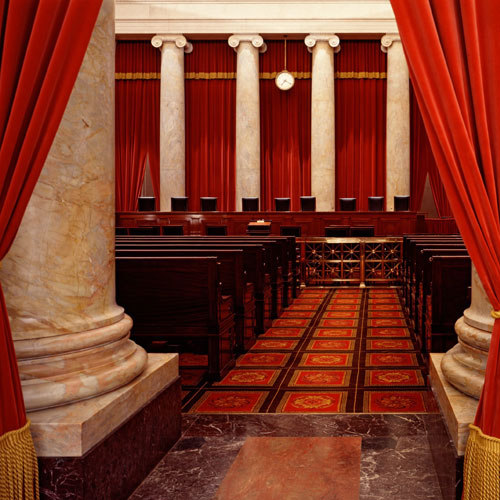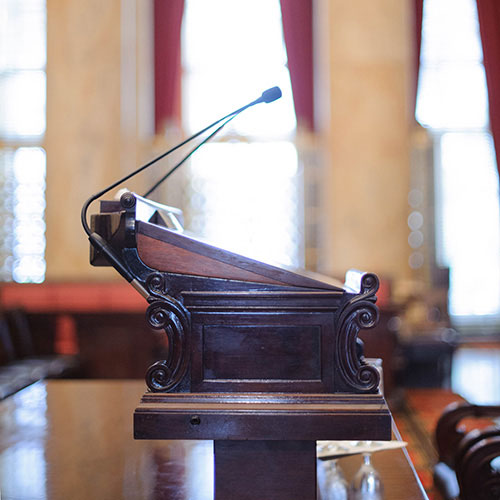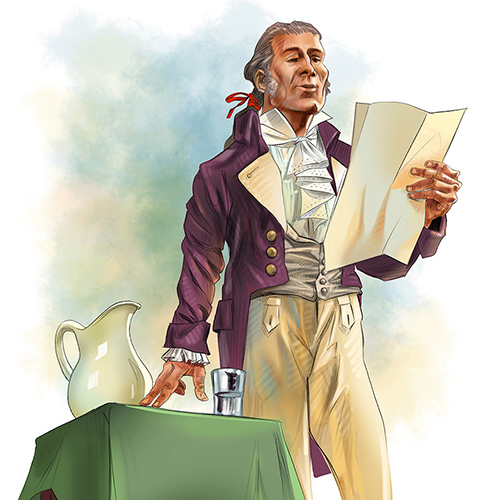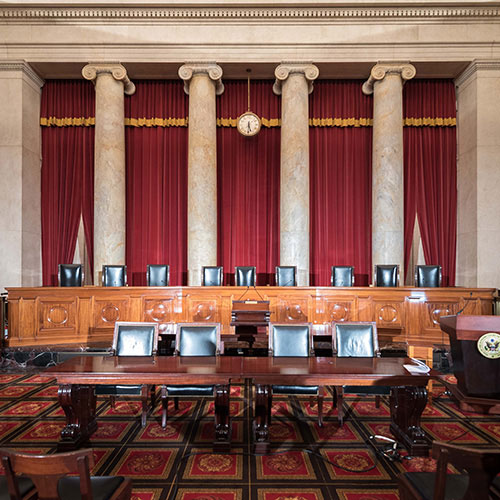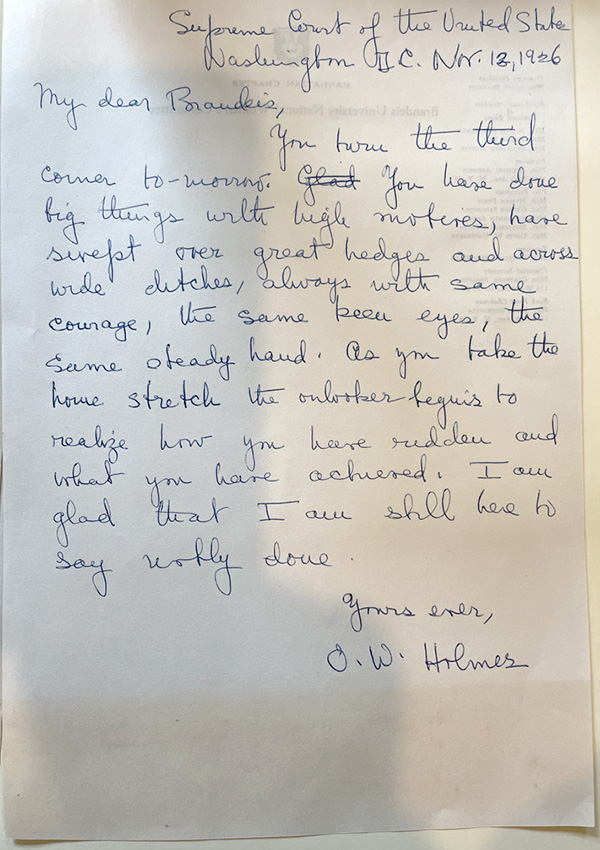
This transcribed letter from Holmes (not his handwriting) to Brandeis on the occasion of his 70th birthday in 1926 comes from the private files of Susan Brandeis. Credit: The Brandeis Family
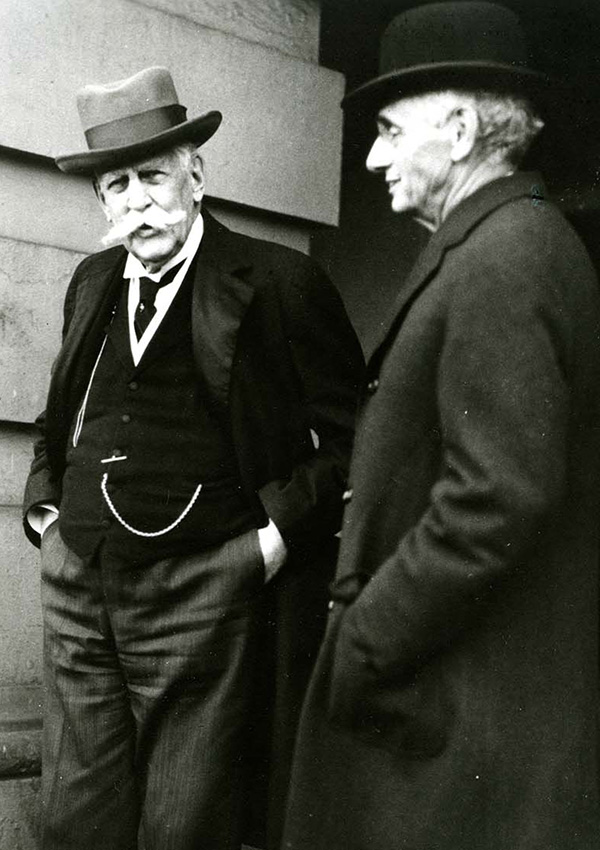
Justices Holmes (left) and Brandeis (right) photographed leaving the Court in an undated photo, circa 1926. Credit: Harvard Law School Historical & Special Collections
November 13 marks the birthday of Justice Louis D. Brandeis (1856-1941), whom President Woodrow Wilson appointed to the Court in 1916. To commemorate this legal and judicial giant whose ideas on free speech, privacy, government intrusion and democracy continue to shape modern society, we offer a letter from the files of the Justice’s daughter, Susan, shared with us recently by the Brandeis family. Writing on Supreme Court letterhead on Brandeis’ birthday in 1926, Justice Oliver Wendell Holmes (1841-1932) congratulates his bench-mate on turning 70, or “the third corner” as he calls it.
“You have done big things with high motives, have swept over great hedges and across wide ditches, always with same courage, the same keen eyes, the same steady hand,” writes Holmes, who met young Brandeis when he was teaching law at Harvard. The brilliant Kentucky-born Jew and the brilliant Boston Brahmin struck up a friendship despite their 15-year age difference. Brandeis graduated in 1877, having earned the law school’s highest average in its history. When he joined Holmes (appointed in 1902) on the high bench nearly forty years later, they became ideological allies. The pair often dissented together, standing up to the majority’s narrow interpretation of the Fourteenth Amendment and advocating for upholding social, economic, and labor laws.
Holmes penned this birthday missive only ten years into his junior brethren’s Supreme Court tenure–before Brandeis had written his most important opinions on privacy, free speech, and the limits on the power of federal courts—but he nonetheless was able to reference what had already been an extraordinary career. (Before becoming a judge, Brandeis was a highly successful Boston attorney who took on pro bono work in the public interest supporting workers’ rights.) “As you take the home stretch, the onlooker begins to realize how you have ridden, and what you have achieved,” says Holmes, who was partial to racehorse metaphors about aging. The senior jurist, age 85, who would hang on to serve with Brandeis for another five terms, concludes his letter: “I am glad I am here to say nobly done.”
